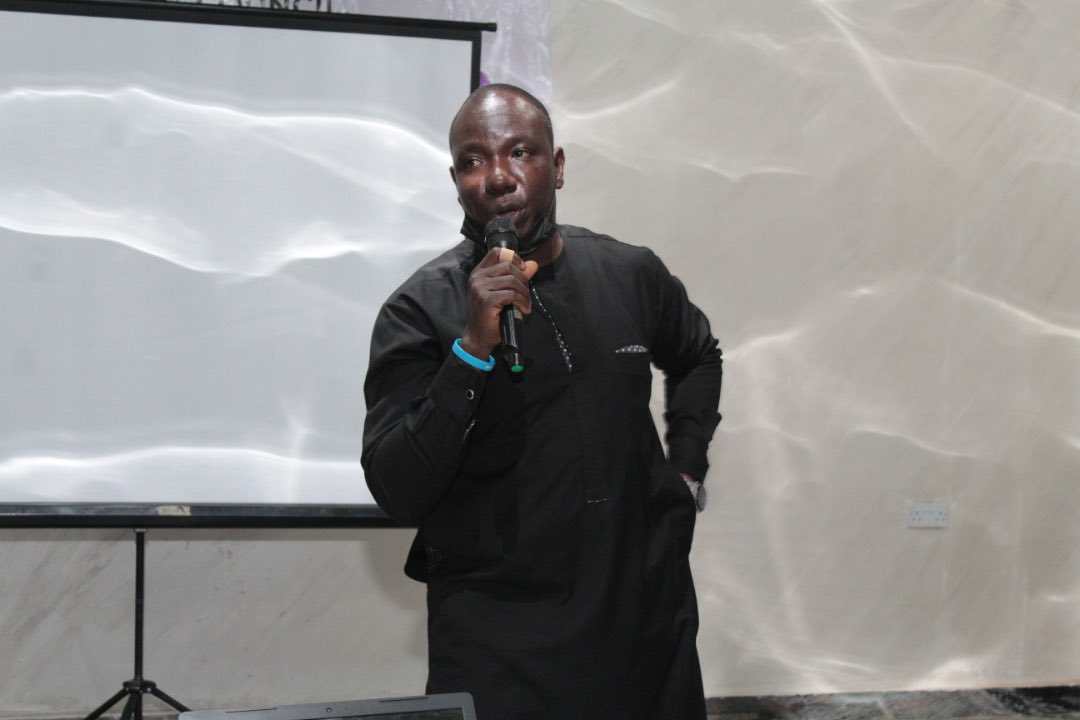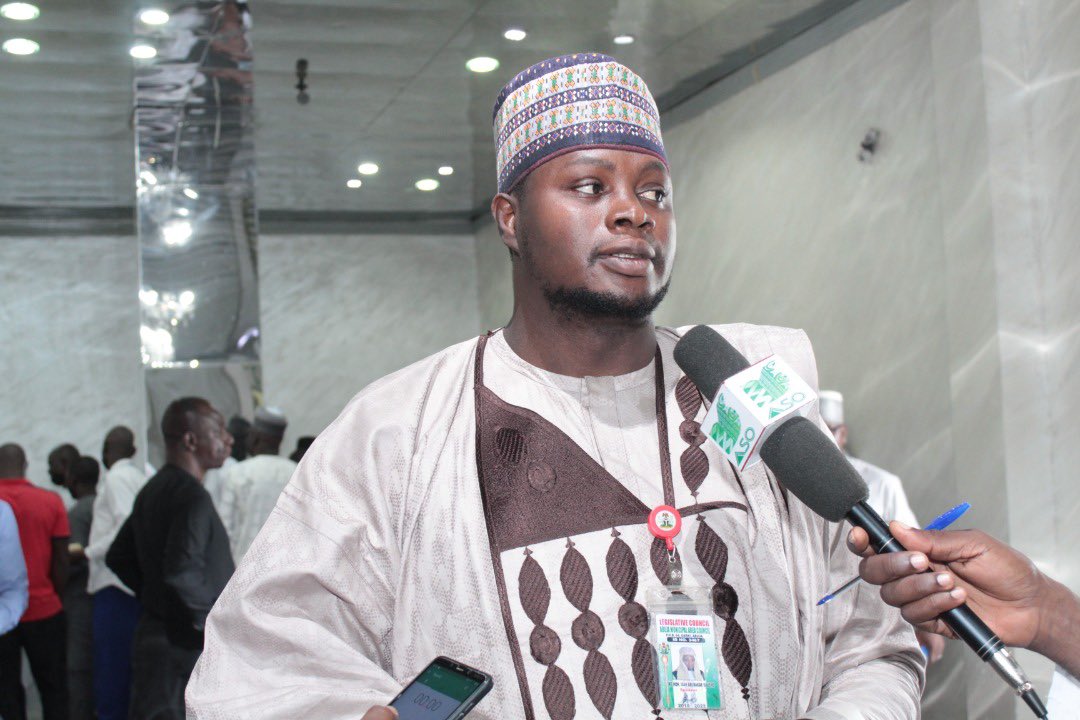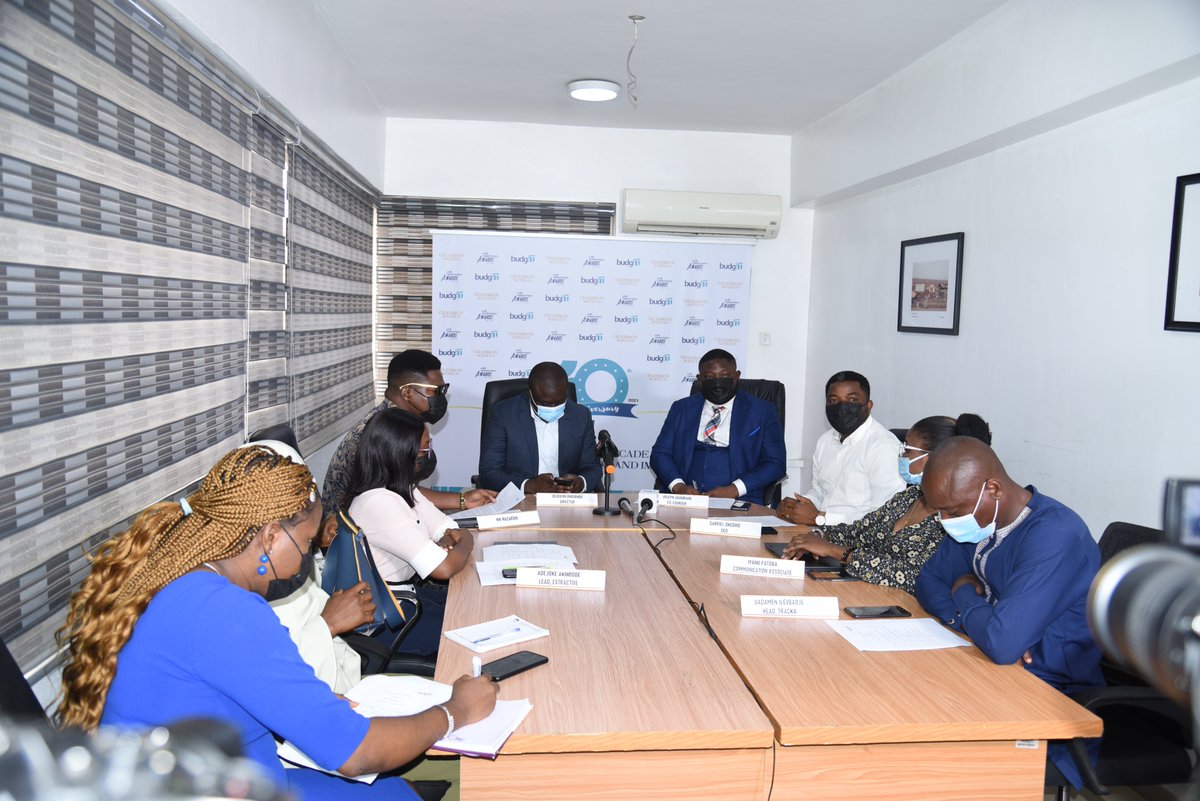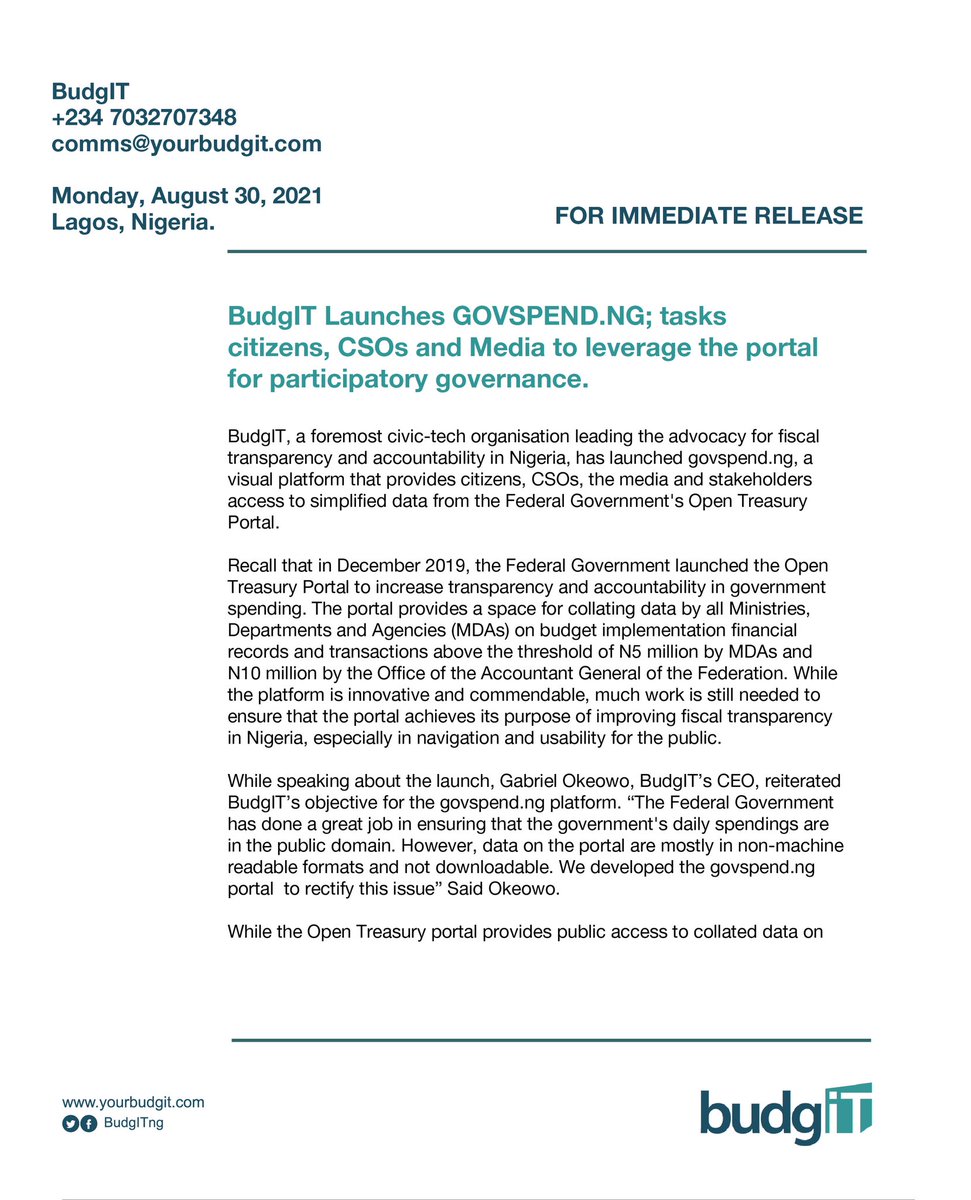
FG missed its revenue target for the 6th time after earning N2.31tn from the projected sum of N3.31tn for H1 2021.
Of this amount, debt servicing wiped off N2.O2tn, leaving ONLY N290bn for non-debt recurrent expenses.
How did FG finance its salaries, overheads & CAPEX?
Thread!
Of this amount, debt servicing wiped off N2.O2tn, leaving ONLY N290bn for non-debt recurrent expenses.
How did FG finance its salaries, overheads & CAPEX?
Thread!

The 2021 budget was anchored on an oil revenue projection of N1.01tn as of Jun 2021; however, FG’s share of actual H1 oil revenue stood at N538bn, indicating a 53% performance.
For non-oil revenue, the actual inflow stood at N778bn, slightly above the projection of N744bn.

For non-oil revenue, the actual inflow stood at N778bn, slightly above the projection of N744bn.

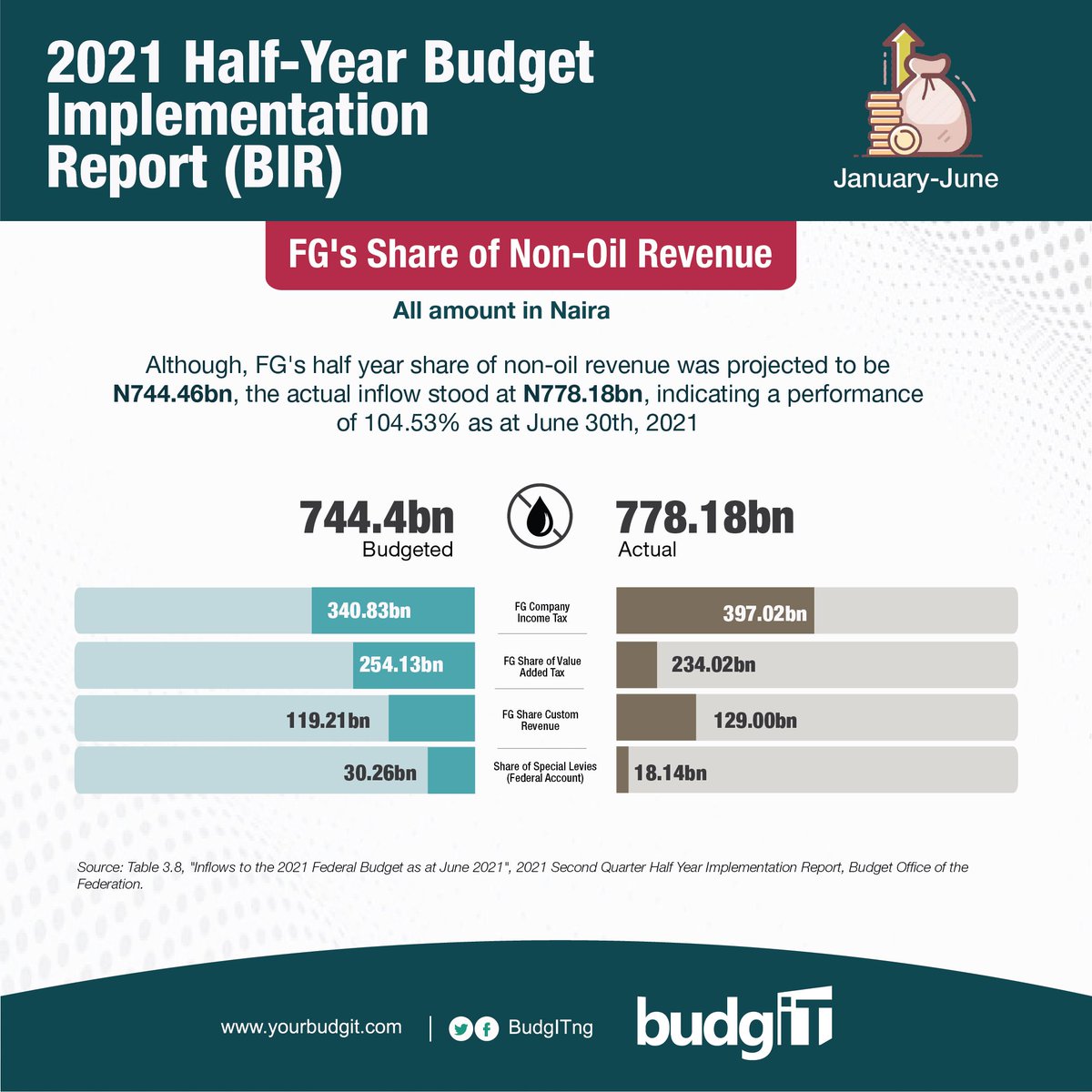
A quick analysis of other revenue sources reveals that FG recorded ZERO revenue from stamp duties and (Domestic recoveries+Assets+Fines), despite the projections of N250bn and N16.34bn in each category, respectively. 

Cumulatively, FG's actual revenue stood at N2.31tn, indicating a revenue performance of 69% of the prorated N3.31tn as of June 2021. 

On expenditures.
Despite the low revenue performance, FG’s total expenditure stood at N5.81tn, indicating a 100.08% compared with the budgeted amount of N5.76tn.
This comprises recurrent expenditure(N2.02tn) and non-debt recurrent expenditure(N3.78bn).
Despite the low revenue performance, FG’s total expenditure stood at N5.81tn, indicating a 100.08% compared with the budgeted amount of N5.76tn.
This comprises recurrent expenditure(N2.02tn) and non-debt recurrent expenditure(N3.78bn).

A quick breakdown of the actuals on CAPEX reveals an 84% performance compared with the projected amount of N1.54tn.
For statutory transfers, the total budget of N248bn was disbursed; however, the details of how this money was spent remains shrouded.

For statutory transfers, the total budget of N248bn was disbursed; however, the details of how this money was spent remains shrouded.


The cost of servicing FG's debt remains a critical cause for concern as debt obligations gulped 87% of FG’s total revenue.
This means that a significant percentage of FG’s salaries, overheads and capital expenditure were financed with loans and CBN support.
#AskQuestions
This means that a significant percentage of FG’s salaries, overheads and capital expenditure were financed with loans and CBN support.
#AskQuestions

• • •
Missing some Tweet in this thread? You can try to
force a refresh



